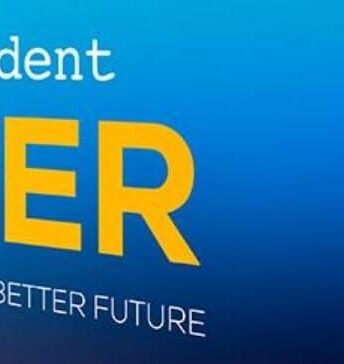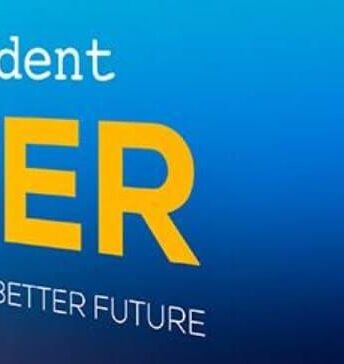Whether you’re a senior professional or a student just starting, one thing remains constant: developing soft skills to become a top performer. Unlike learning a recipe to enjoy a delicious cake, soft skills go beyond more knowledge—they are the critical abilities that can transform your professional and academic life.
Mastering soft skills can be your key to unlocking new opportunities and achieving greater success, whether you’re gearing up for your future career or aiming to excel in university years.
Let’s explore how you can develop these essential abilities and see how they can transform your performance and interactions in both your academic and future professional life.
I. What are soft skills?
One definition of ‘soft skills’ is the set of personal attributes that empower an individual to communicate, collaborate, and interact effectively and harmoniously with others in various social and professional settings.
Unlike hard skills, which are specific and measurable (like coding or writing), soft skills are all about how you communicate, collaborate, and solve problems. These are the skills that help you get along well with others in your workplace.
For example, think about active listening—when you pay attention to what someone is saying rather than just waiting for your turn to speak. Or consider teamwork—how well you work with others to achieve common goals. And don’t forget emotional intelligence, which helps you understand and manage your own emotions while empathizing with others.
These skills are crucial for success not just in your studies, but in your future career too! So, let’s explore why you have to develop these skills and why they matter.
“Mike, a skilled developer, was leading a crucial software project. Despite his technical skills, he lacked essential soft skills. He didn’t communicate with his team, ignored their feedback, and avoided resolving conflicts.
As a result, team members like Ema, who had valuable ideas, felt unheard, and Tom struggled with workload issues without support. The project missed its deadline, had bugs, and lacked key features.
This experience showed that without effective communication and teamwork, even the most talented individuals can fail to deliver successful outcomes.”
“John, a junior IT specialist, was assigned to set up a new server. Despite his technical know-how, he didn’t manage his time well.
He underestimated how long tasks would take and didn’t prioritize. As the deadline loomed, he rushed, missing critical steps. The server had issues, and the project was delayed.
This showed that good time management is crucial to delivering reliable results.”
“Mia, new to the IT team, was great at managing on-premise networks. When the company moved to cloud services, she hesitated to learn new tools. Her resistance left her struggling with new tasks, falling behind while others advanced.
This showed that being adaptable is key to staying relevant in your job.”
These examples demonstrate how technical skills intertwine with soft skills to create a pathway for professional growth. Without these essential soft skills, we would struggle to communicate effectively, to adapt or prioritize, and ultimately, to improve ourselves.
In the fast-paced world of IT, developing both technical expertise and soft skills is crucial for becoming a well-rounded professional.
II. How Soft Skills Provide a Competitive Advantage?
Soft skills are increasingly important both in academic and professional environments, as they can significantly impact an individual’s ability to work effectively with others and achieve their goals. In an interview, for instance, a recruiter will take into consideration how you develop ideas, listen, and respond coherently, on your ability to work with a team. All of these are signs of a great new colleague who will manage to find the resources to solve challenges that appear.
Situation: Alex, a recent IT graduate, was interviewing for a network administrator position. Although Alex’s technical skills were not advanced, the interview focused on team dynamics and communication.
Soft Skills in Action: Alex described how he successfully managed a team project by facilitating clear communication, addressing team concerns, and ensuring that best solutions came as a result of teamwork. He highlighted his role in resolving conflicts and coordinating efforts.
The recruiter valued Alex’s ability to work well with others and lead effectively, resulting in a job offer that acknowledged both their technical and soft skills.
Real-World Showdowns:
Effective Communication
During virtual meetings, clear and concise communication is crucial.
Suppose you need to present your ideas or provide feedback. Your ability to articulate your thoughts clearly, ask relevant questions, and listen actively ensures that all team members are on the same page, leading to more productive discussions and fewer misunderstandings.
Team Collaboration
In a group project, especially one with tight deadlines, the ability to work well with others is essential. If every team member is proactive, supportive, and willing to share their strengths, the project progresses smoothly.
Conversely, if one member fails to engage or communicate effectively, it can hinder the team’s progress and affect everyone’s performance.
Conflict Resolution
Conflicts are inevitable, even in the well-functioning teams.
Suppose there’s a disagreement about project direction or individual responsibilities. Your ability to address conflicts diplomatically, find common ground, and propose solutions can help resolve issues quickly and maintain a positive team dynamic, but also create an atmosphere where the team is focused on problem-solving.
Adaptability
Projects often don’t go as planned.
If a sudden change in project requirements or team structure occurs, being adaptable and open to new ways of working helps you adjust smoothly. This flexibility ensures that you can continue contributing effectively, even in the face of unexpected challenges.
Reflect on experiences similar to those mentioned above. Consider how you approached them and be sure to share these stories during an interview. These experiences could be key factors in the final decision-making process.
In conclusion, technical skills may get you started, but soft skills are crucial for long-term success. By mastering communication, teamwork, and adaptability, you enhance your ability to thrive in both academic and professional settings.
Combining strong technical knowledge with these essential soft skills will set you apart and drive your success.
Tech skills get you in the door, but soft skills keep you in the room. Keep levelling up, because in the tech world, your mindset is just as powerful as your work.



















